Marcelino Sambé on ‘Like Water for Chocolate’ and why it’s time for ballet to embrace LGBTQ stories
Principal of the Royal Ballet, Marcelino Sambé talks about originating the role of Pedro in Like Water for Chocolate, and LGBTQ+ roles in ballet's future.
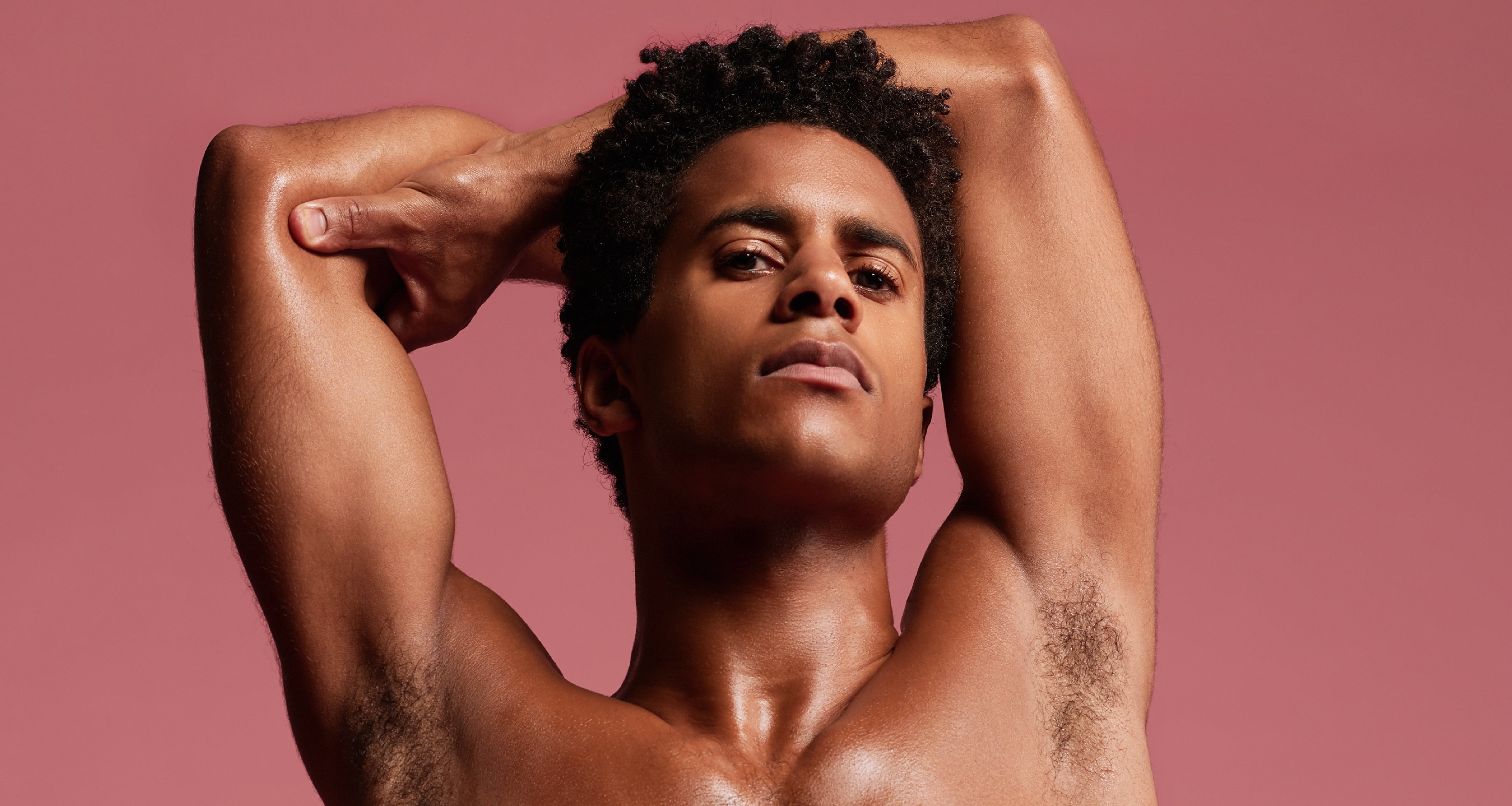
Words: Joseph Kocharian; Image: Kosmas Pavlos for Attitude
The Royal Ballet and Christopher Wheeldon are debuting their latest creation, Like Water for Chocolate, based on the incredibly popular modern Mexican classic of magic realism with the same name.
Marcelino Sambé, principal artist at the Royal Ballet, is originating the role of Pedro, who goes on a journey of forbidden love, lust, regret and grief, alongside his co-star Francesca Hayward’s Tita, who magically and unknowingly transfers her most heightened emotions, whether it be agony or ecstasy, into the food she prepares, which affects all who consume it.
The role requires a lot of acting and passion, which is something former Attitue cover star Marcelino has always excelled at. Incredibly charming, charismatic and playful in person, he’s brought an extra intangible element of instinct and passion to his dancing, that brings an element of wonder to his performances, and has made him an incredibly popular principal with the Royal Ballet audiences.
Attitude spoke to Marcelino about the carnal side of Like Water for Chocolate, as well as what the landscape of ballet could look like in the future if we had more intimate LGBTQ+ love stories on the boards of the Royal Opera House.
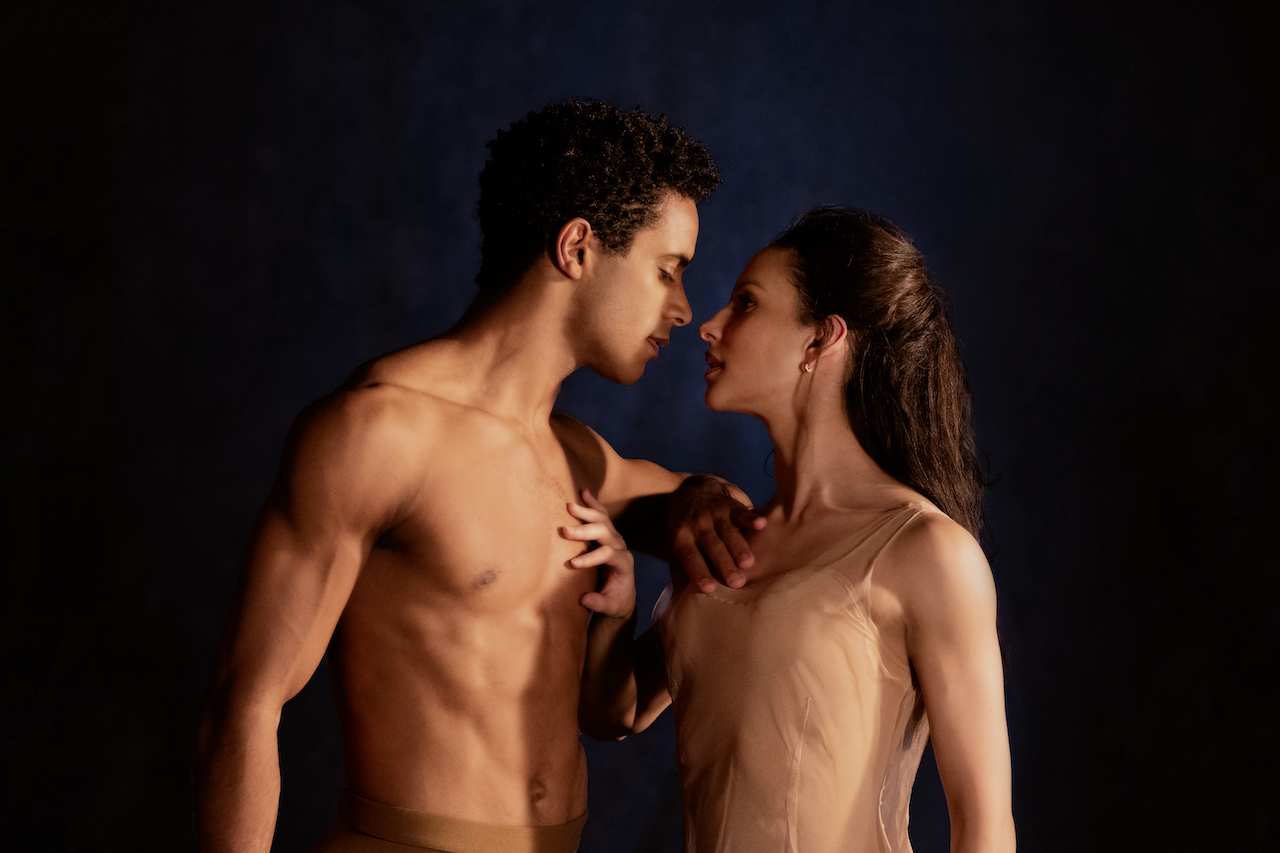
Photography by Camilla Greenwell
A lot happens in the book, can you give a brief description of what happens and the themes?
It’s magical realism, and the turning point of the ballet is where Pedro asks Tita’s mother to marry her. In the book, there is a family tradition that the youngest daughter cannot marry, and she must stay at home and look after her mother, until the mother dies. Tita’s mother doesn’t allow him to marry her, but instead says he can marry the older sister, Rosaura. He accepts the proposition, because he believes that by doing so, at least he will be able to be near to Tita forever, living in the same place and he’ll be able to see her every day and love her from a distance, but obviously that doesn’t work out as their love is so strong that they end up getting together.
It’s really a ballet about forbidden love, and because Tita is suffering so much from this, she magically starts transferring her emotions into food, so at her sister and Pedro’s wedding, she cries into the icing of the cake and everyone in the wedding starts throwing up and feeling overwhelmed with sadness. Later in the ballet when they’re having a dinner, she cooks this quail dinner, using petals that come from a rose that Pedro had given her when they were really young, when they were full of lust and love and pleasure. Everyone that eats that quail dinner goes into this amazing orgasmic journey. It’s a very peculiar, painful but beautiful story.
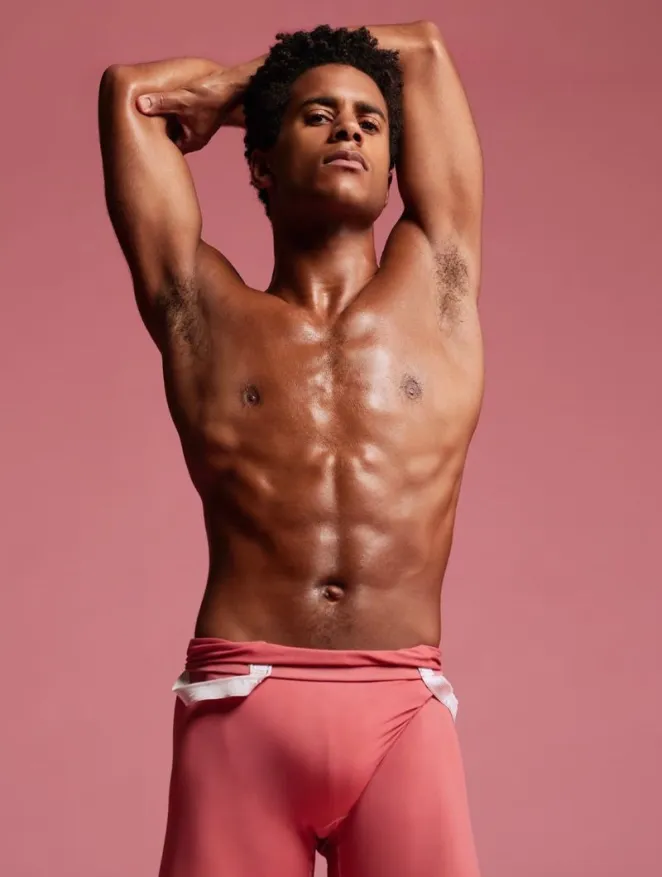
Photography by Kosmas Pavlos for Attitude
What is it like for you to tap into these incredibly strong emotions that are at either side of the spectrum? There is passion and love, but also grief and inconsolable despair.
As I have developed as a dancer, all I have wanted to do is explore is the emotional side of being an artist and the vehicle for this is my body. The exploration is very connected to the physical side of things. I’m usually in more of the virtuoso kind of roles, but to be able to finally explore the emotional side and the theatrical side of my art is what interest me. I think it’s what’s going to keep me developing and falling in love with the art form, and this ballet is that opportunity for me to do that. I get (to perform) a role that has such range. He’s so young and a child when he first comes on stage and a very happy person, but when he accepts the proposal to Rosaura, he becomes a very dark and frustrated character, and I love playing that, because it’s cathartic and I can use my life experience to cleanse myself through the dance.
You were talking about the erotic themes, do you embrace that passion, or are they difficult to build up? Does the passion side come naturally?
[Laughs] My colleagues and I were talking about this yesterday, how so little of sex and sensuality and body-to-body [contact] is really explored or portrayed on stage usually- or to show the human and vulnerable side of people to the audience. For so long ballet dancers have been seen as these higher-than-humans, but actually it’s so cool to play people who are so flawed. The characters in Like Water for Chocolate do have lust for each other and do make mistakes and I think it’s so cool, but I do think we can still go further when it comes to themes and showing the body in a sensual way.
There is this idea of us dancers being eternal students and figures of grace and perfections when actually we are very flawed and very viscerally connected to our bodies and sensuality. I probably have the cheekiest, funniest, partner that you can have in the Opera House for this ballet, so this is such a great opportunity to be onstage with Francesca Hayward, to be so vulnerable and so raw. There could not be a better person (to do this with) because she is so open and such a good actress, so I feel very comfortable to explore with her, and I can’t wait until the next season to develop that and ballets that tackle similar themes.
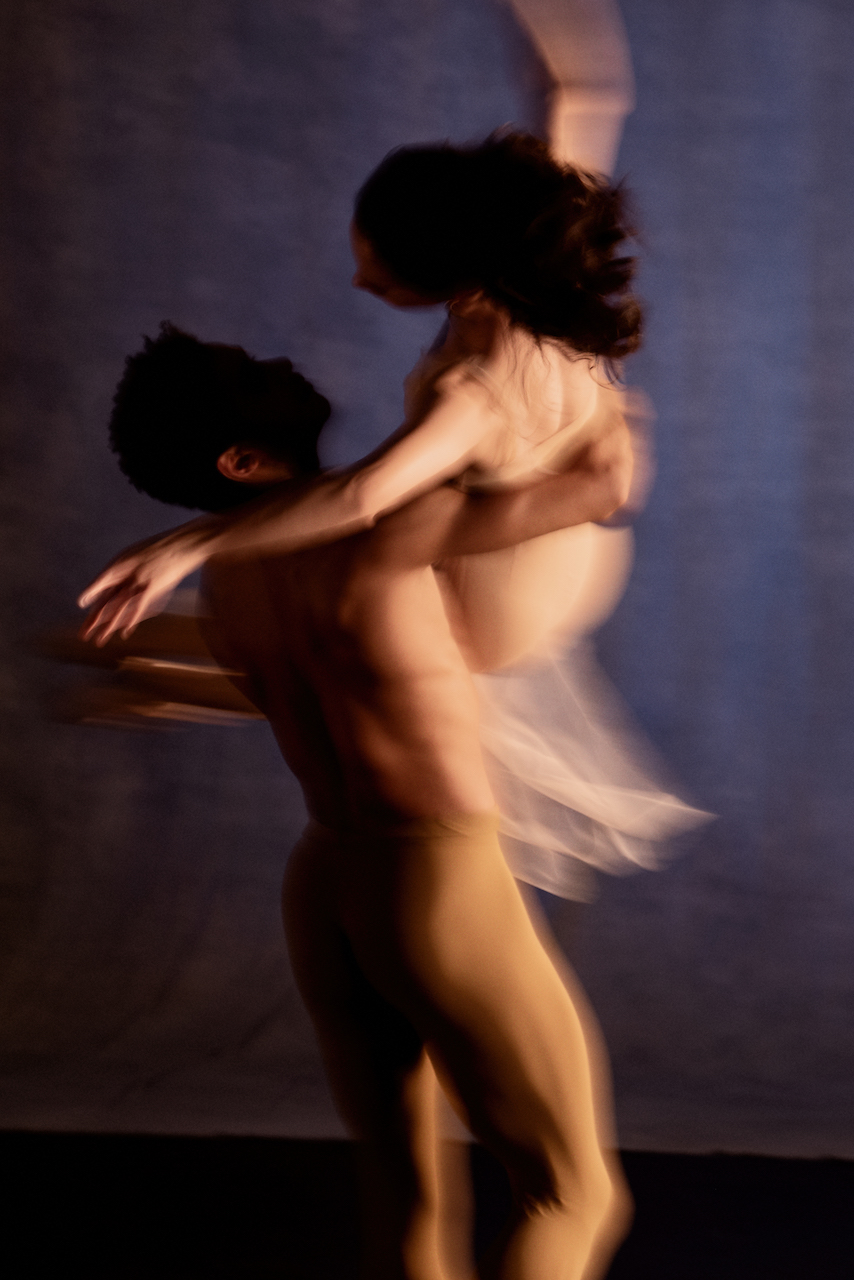
Photography by Camilla Greenwell
How is it working with Francesca?
We actually started our journey’s together, when we started doing full length ballets. My first season, I was always paired with Francesca…we danced everything together. Then throughout the years we have explored and danced with other partners, which I have also loved, working with all these fantastic dancers, and then coming back to Frankie for this ballet that’s full of maddening lust and passion fits so well for me because she is so vulnerable, so I have no other choice but to completely open my heart to the situation and it becomes such a cool experience.
You’re also in, well it’s a bit more complicated than a love triangle, with fellow principal, Matty Ball. You always seem to be in a romantic triangle with him on stage.
[Laughs] It’s true!
It’s not like the Cellist, I am guessing, where you were dancing as much with him this time?
In this case, it’s more the rivalry role. My character gets very upset that Tita finds comfort and partnership with John, Matty’s character, which is not a loving one, but a more caring one. He’s deeply in love with her, but she can never forget Pedro, so when I see them engaged and getting closer, it rally burns Pedro inside and he becomes furious, and then they cheat on Dr John. So I think the audience will feel a lot for Dr John, who is a flawless man in a world full of people with faults. It’s so nice to always been on stage with Matt. He’s such an artist.
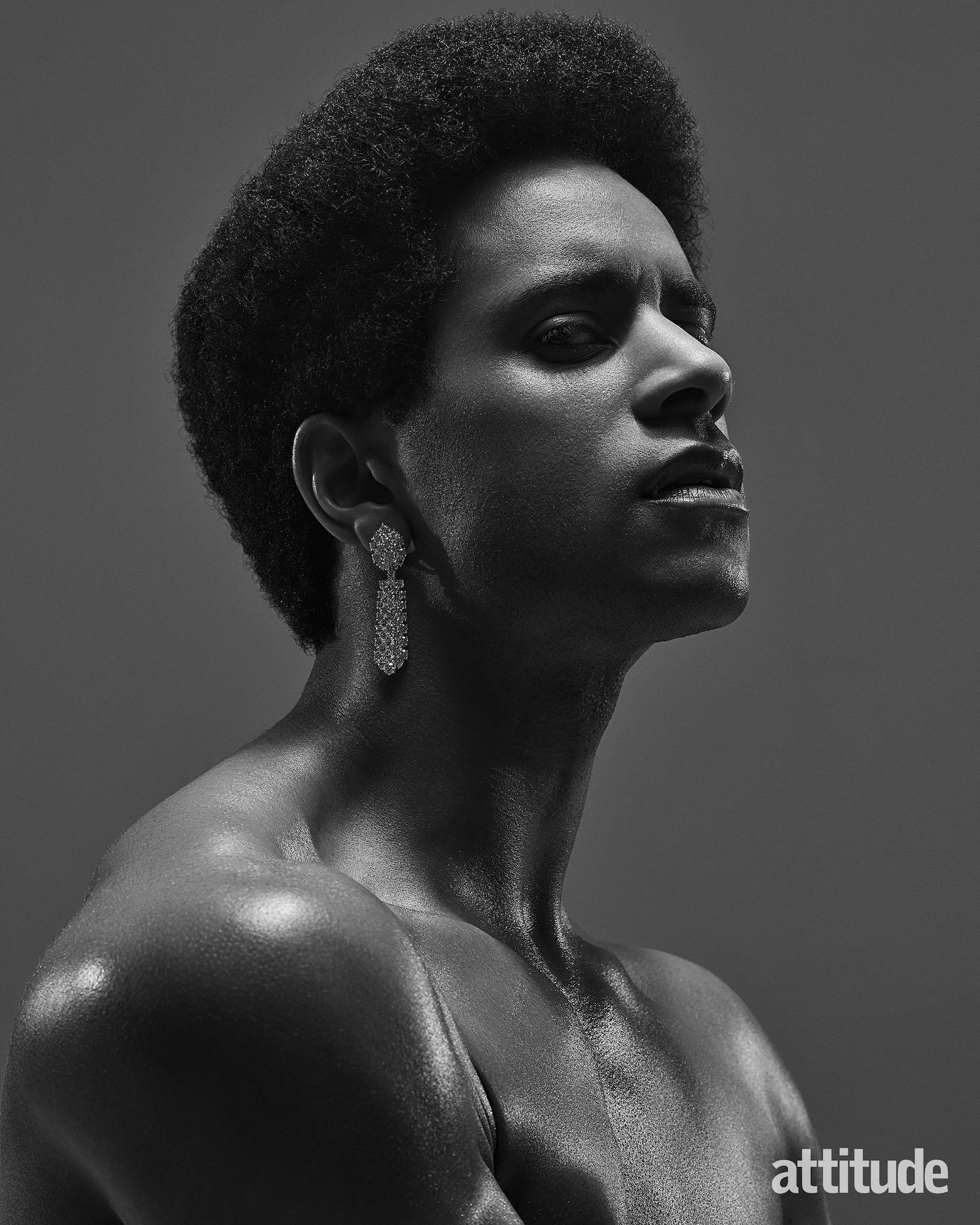
Photography by Kosmas Pavlos for Attitude; Marcelino wears Van Cleef & Arpels
I feel like, in classical ballet, sexuality is there, but it’s in an inverted, repressed way, like in Swan Lake, or your character, Prince Albrecht in Giselle. Sexuality is there, but it’s about being perfect and repressing it. You’ve just finished doing a run of classical ballets, so how is it feel going to do something more modern?
I feel like this sort of work matches my natural personality more and is way more fulfilling. Next season I am playing my dream dream role in Mayerling, about the crown prince Rudolf, who dies in a suicide pact with his mistress. It’s an amazing ballet exploring darker themes and I’ve always felt like that was my goal to reach [that]. Pedro in Like Water for Chocolate is a step to that type of character that I want to portray, so to be able to explores those themes and be able to be more of a human on stage is something that I appreciate. It’s a bit like Romeo, in Romeo and Juliet. The character of Pedro sits more in this kind world- the theatre, the drama, which I am more connected with. It’s a proper meal [of a ballet].
There have been a couple of dancers promoted to Principals recently, one of which, William Bracewell who is LGBTQ+.
[Squeals] Finally!
Are you still waiting to do a project where you can dance something more passionate and loving but with a same-sex partner?
I’m so happy you said that, as we were also discussing this the other day at the Royal Opera House and this ballet. We were saying, how with Like Water for Chocolate, it’s so amazing to do something more carnal and more body to body, and then we went on to the subject of LGBTQ+ representation in ballet. We were discussing that in all the centuries that ballet has been around and LGBTQ+ people have been at the centre and huge part of this industry, from dancers, choreographers, lighting and costume designers, directors, how do we still not have a ballet that really represents a story of a man and a man, or a woman and a woman? I think it’s crazy. I have a project in my head that I have spoken to you about before, that I want to develop, of Giovanni’s Room. It would translate so well into a ballet. You know Omari Douglas, from It’s a Sin? He did a beautiful six hour reading of Giovanni’s Room and I thought how cool it would be to have the words read out as part of the ballet?
I wish and I would love to be part of the creative of something like this, because it’s such an amazing story and tells such a dignified tale of two men in love, and how flawed, intense, but also how normal same sex love can be and is. I would love someone mega like Wheeldon or McGregor to create a ballet where we actually have two men kissing. How much longer do we have to wait until we see it? I mean, can you imagine two men dancing together like that, and the power of it? How interesting it could be? Two years ago when I told you that I thought Call Me By Your Name could be a good ballet, I was still a bit reserved, and thinking, oh my god, I wonder what people will think about It. But actually I think it’s more than time now to do it, especially now we now finally have more LGBTQ+ representation at the top levels of the company.
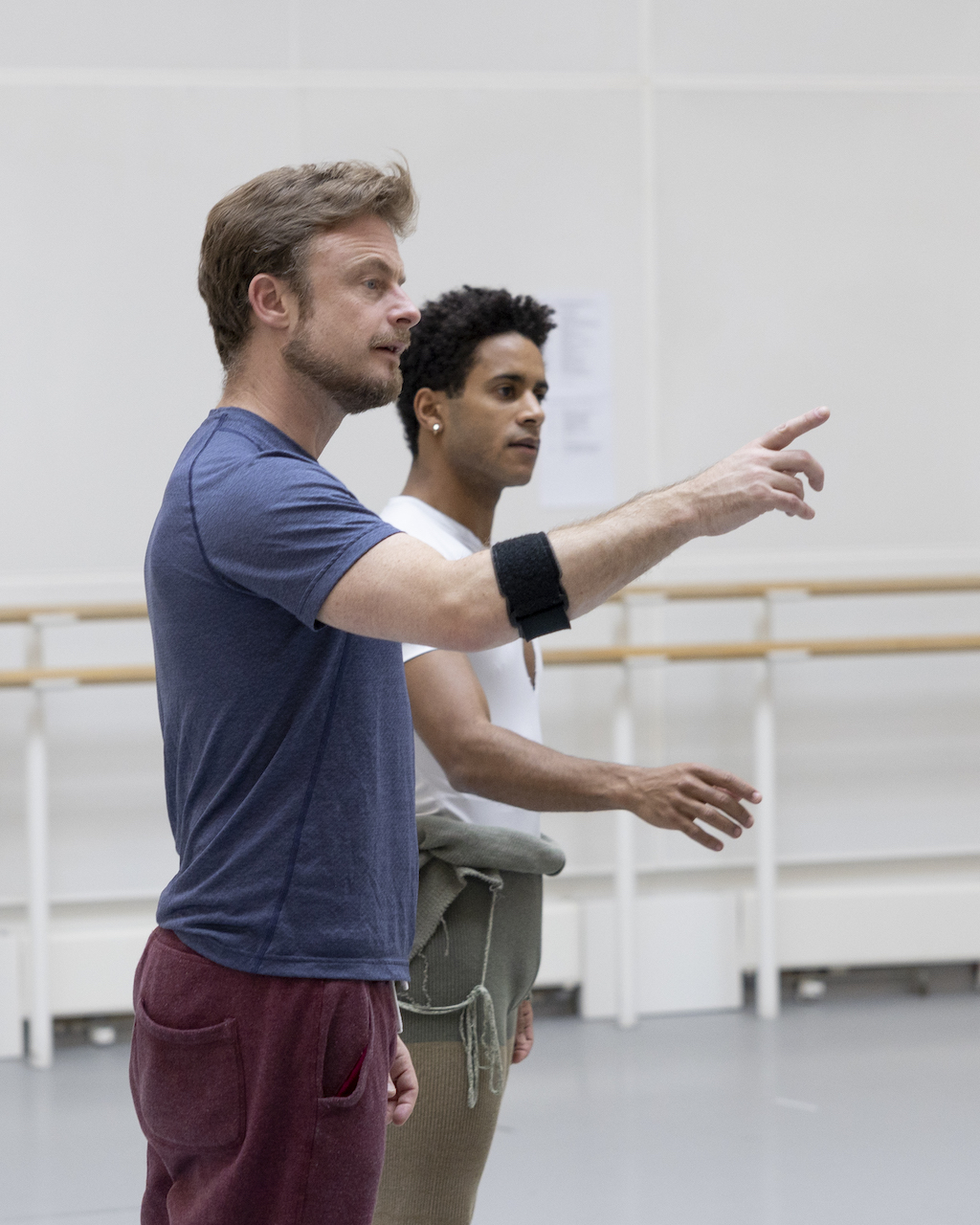
Photography by Anfrej Uspenski
There are more LGBTQ+ stories out there now in the mainstream, with the likes of Heartstopper on Netflix. Do you think that will permeate into the ballet world more?
I just can’t believe it has never really come to fruition, and then I start wonder where the resistance comes from? Because I walk around the Royal Opera House and around the ballet world and it’s so queer representative, but then somehow there is still a sort of fear of the reaction of the audience and we are not going to get a younger or broader audience [in ballet] if we don’t take these risks, which are not risks at all really. We need to be telling the stories of everyone. It’s way past time.
This ballet has had really intense lead-up. Are you working all hours? Are the rehearsals exhausting? How are you feeling running up to opening night?
I feel a bit responsible to make sure that it has the dignity and the standard of a production from Chris Wheeldon and the Royal Ballet, and that’s always something that weighs on your shoulders, because obviously it’s going to be great because it’s him, but that has been a concern of mine, and it is an exhausting process, because you are repeating and repeating all the time as well as trying new stuff all the time and the duets are very crazy and difficult so you want to make them perfect.
You’re originating the role of Pedro in Like Water for Chocolate, do you feel more pressure or freedom when you originate a role?
I feel a huge responsibility, in that this ballet is going to be in the repertoire for a long time, so hopefully it will be a piece that will turn into something that the generations to come will be able to enjoy and do it differently and add things, and that’s the big honour about having a ballet being created on you. You can leave your print at the Royal Ballet, and that’s not something that happens to a lot of people. I heard this ballet was going to be created on me before the pandemic, so it was a long time ago, almost 2-3 years ago. I was already feeling so much pressure and so honoured, and it was supposed to premier two years ago, so it has been a long wait to get to here today. I’m so happy, and of course there is pressure, but I keep thinking about the future and when I’m like 70 and I can be like wow, I originated that, and hopefully I can do the same with many more ballets as that’s my strength, being a creative, and being in the studio and pushing the art form forward and I think that’s why I am in this position (in my career) and it’s the perfect opportunity for me right now.
Like Water for Chocolate runs from 2-17 June 2022 at the Royal Opera House, London. Tickets from £5-£115 roh.org.co.uk
